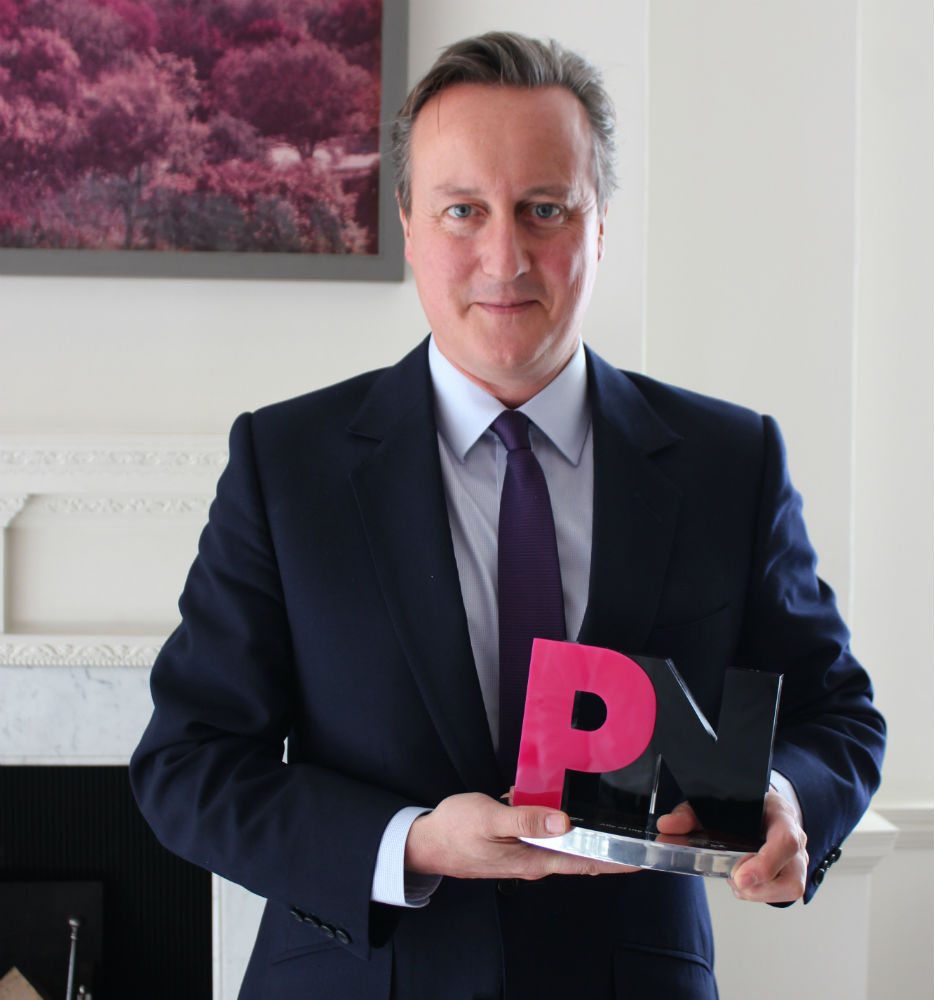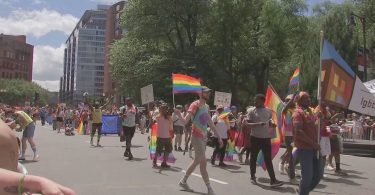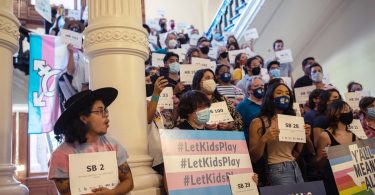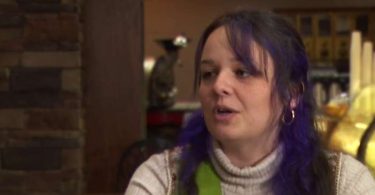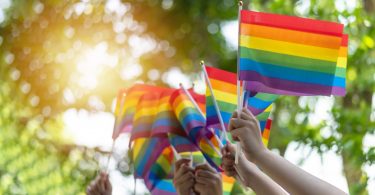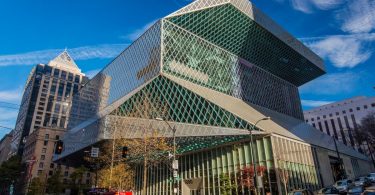Today marks the fifth anniversary of the House of Commons vote in favour of same-sex marriage.
The Marriage (Same Sex Couples) Bill passed its second reading by a vote of 400 to 175 half a decade ago, on February 5 2013.
The issue was first put on the table by Liberal Democrat equalities minister Lynne Featherstone, during the Conservative-Lib Dem Coalition government.
In her book ‘Equal Ever After’, Baroness Featherstone explains how she secured the crucial backing of three key members of the government – Deputy Prime Minister Nick Clegg, Home Secretary Theresa May, and Prime Minister David Cameron – for the proposal to go ahead.
The equal marriage bill was later steered through Parliament by Conservative equalities minister Maria Miller, who worked on a cross-party basis to ensure the bill’s passage – with support from Mr Cameron, Mr Clegg, and Labour leader Ed Miliband.
Facing a vocal minority of fierce opposition, all three major parties agreed to give their MPs a free vote on the legislation – but the law passed by a clear margin.
Mr Cameron, who has since hailed equal marriage as his proudest achievement in government, staunchly defended the legislation in spite of intense pressure from grassroots activists and MPs within his own party, which had never before pioneered significant LGBT rights legislation.
In the end, nearly half of Conservative MPs ended up voting for the bill – by a margin of 126 to 134.
The Conservative opponents were joined by 22 Labour MPs, four Lib Dem MPs, all eight of the Democratic Unionist Party’s MPs and two independents in voting against equal marriage.
217 Labour MPs and 44 Lib Dems voted in favour, alongside eight MPs from smaller parties.
MPs in support of equality gave many moving addresses during the debate.
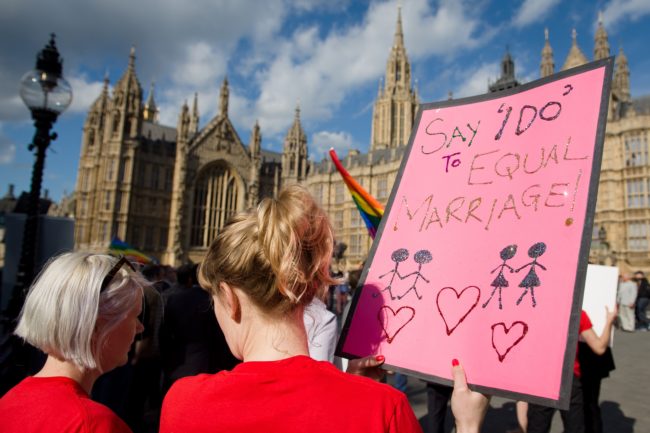 (Photo by LEON NEAL/AFP/Getty Images)
(Photo by LEON NEAL/AFP/Getty Images)
Conservative MP Mike Freer, who is gay, spoke movingly during the debate about his long-term partner.
He said: “When I was elected to this House in May 2012 it was perhaps the proudest day of my life… I should point out actually it was the second proudest day of my life, because the proudest day was when I entered into my civil partnership, which I did six years ago, with my partner of 21 years.”
Mr Freer continued: “Our civil partnership was a huge step forward for us, and yet many argue that we should be content with our civil partnership – after all it affords all of the same legal protections as marriage – but I ask my married colleagues, did you get married for legal protections it afforded you?
“Did you go down on one knee and say ‘darling, please give me the protections marriage affords us?
“Of course you didn’t. My civil partnership was our way of saying to my friends and my family this is who I love, this is who I am, this is who I wish to spend the rest of my life with.
“I’m not asking for special treatment I am simply asking for equal treatment.”
Labour’s Shadow Home Secretary Yvette Cooper said: “Parliament has the chance today to support loving couples who want to get married.
“The chance to make some of the same-sex couples I’ve spoken to in the last few weeks very happy – it means they can finally set the date.
“I hope we will support this bill today.”
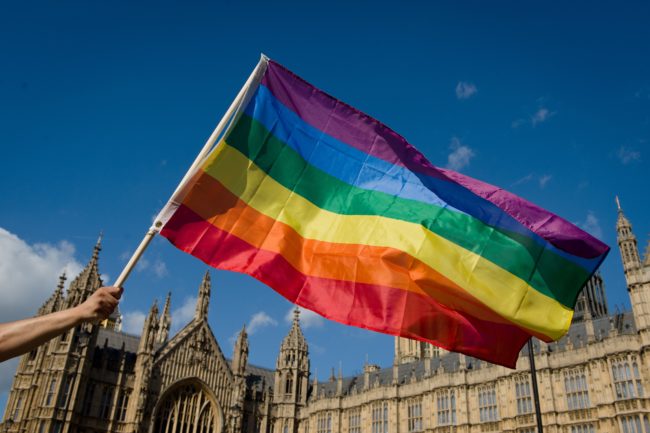 (Photo by LEON NEAL/AFP/Getty Images)
(Photo by LEON NEAL/AFP/Getty Images)
Ms Cooper continued: “Give those couples the chance to be wed, to be married and to have their relationship celebrated and valued by the state in the same way as everyone else.”
The Labour MP invoked the spirit of matrimony in her speech. She said: “I believe the case for equal marriage is a very powerful one. We all love a good wedding. We pause as we walk past a church or registry office to smile at complete strangers coming down the steps in a cloud of confetti because we think it’s lovely they’ve just got married.
“We love the idea of a golden or diamond wedding anniversary, the elderly couple who’ve stuck together through thick or thin, still bickering over the biscuits.
“And we clearly all like a good party.”
Labour leader Ed Miliband said: “This is a proud day and an important step forward in the fight for equality in Britain.
“The overwhelming majority of Labour MPs supported this change to make sure marriage reflects the value we place on long-term, loving relationships whoever you love.
“Equal marriage builds on Labour’s successes in government which include the repeal of Section 28, equalising the age of consent, the introduction of civil partnerships and changes to the rules governing adoption.”
Of course, there was plenty of doom-mongering from other MPs.
One Tory MP claimed it would lead to the introduction of polygamous marriage, while another claimed it would lead to incestuous relationships.
Baroness Featherstone wrote: “Some of the arguments levelled against the coalition’s same-sex marriage proposals not only ranged from the sublime to the ridiculous, but also from the grossly offensive to the downright homophobic.
“The countless references to bestiality, paedophilia, incest, polygamy and worse were less than admirable. On the other hand there were some erudite and brilliant theological debates, alongside some very rational and heartfelt arguments against same-sex marriage, sadly often drowned out by noise and fury.
“Anyone is free to disagree with same-sex marriage. People are entitled to believe that marriage can only be between a man and a woman. If that is their view they can resist getting married to someone of the same sex. It is not compulsory!
“But what they cannot do is simply rail against the fact that not everyone subscribes to their point of view and then try to stop others living life in a different way than their own religion or general view dictates. This was and is an equal rights issue.”
The bill passed through the Commons and Lords, and gained Royal Assent in July 2013.
It came into force on March 13 2014, and the first same-sex marriages took place on March 29 2014.
Lynne Featherstone, David Cameron, Nick Clegg and Ed Miliband have all since been honoured with PinkNews Awards.
Picking up his award, Mr Cameron said: “This really does mean a lot to me.
“I think it’s about five years ago this month that I said to the Conservative Party Conference that I wanted marriage to be available for all.
“For men marrying men, for women marrying women, as well as other people being able to be getting married.
“It comes from a very simple view that the institution of marriage is a brilliant institution. I love being married, I love my wife, we’ve been married for 20 years and I think it should be there for everybody.”
“In a nod to the EU referendum that led to his downfall, he added: “When you’re Prime Minister there are lots of things that you want to change – some go right, some go wrong, some are instantly forgotten.
“But I know with this, with equal marriage, it is something that has already made a huge difference to people’s lives and will go on doing so in the future.”
He continued: “In the end that’s what politics is really about. Not just policies but people’s lives and how they can live there lives.
“I know the fact that we have equal marriage in this country is going to give people a lit of joy for many years to come.
“So having played a small role in making it happen, I’m delighted to accept this award. Thank you very much.”

